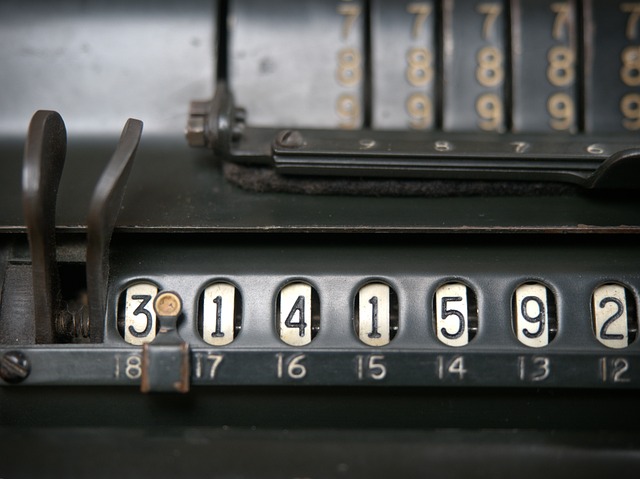
Free Online Random Number Generator Tool For Developers
An RNG, or random number generator, is a tool that generates a sequence of numbers or values that lack a pattern and are therefore unpredictable. These numbers are often used for a variety of purposes, such as creating random passwords, simulating random events in computer programs, and generating random samples for statistical analysis.
There are many online random number generators available. I will be covering some of the most commonly used random number generator tools in this article.
Table of Content
- 1 What are TRNG and PRNG?
- 2 Potential Uses of the Random Number Generator
- 3 8 Free Online Random Number Generator Tools
- 3.1 1. LambdaTest Random number generator
- 3.2 2. Random number generator by Calculator.net
- 3.3 3. Random Number Generator by browserling
- 3.4 4. Random Number Generator by Online number tools
- 3.5 5. DevProjects’ Random number generator
- 3.6 6. Random Number Generator by Testsigma
- 3.7 7. Textmagic’s Random Number Generator
- 3.8 8. ISAAC Random Number Generator
- 4 Conclusion
What are TRNG and PRNG?
Random number generators can be broadly classified into two categories: pseudo-random and true random.
A pseudo-random number generator (PRNG) is a computer program that generates numbers that appear to be random but are actually determined by a set of instructions or formulas.
A true random number generator, on the other hand, generates numbers that are truly random and cannot be predicted or controlled. This is akin to spinning a wheel with no pattern or rolling a dice with no bias, so each time it is used, a different number is generated.
A cryptographic pseudo-random number generator is a type of PRNG that generates numbers that are suitable for use in cryptography. It uses a special code or formula to generate numbers that appear random but are not truly random.
| Pseudo-random Number Generator
|
True Random Number Generator
|
Cryptographic Pseudo-random Number Generator
|
|
| Definition | A computer program that generates random numbers | A computer program that generates truly random numbers that cannot be predicted or controlled | A computer program that generates numbers that appear to be random but is actually generated using a set of instructions or a formula |
| Method | Mathematical algorithms | Unpredictable physical phenomena, such as atmospheric noise, the timing of radioactive decay | Mathematical algorithms |
| Predictability | Initially unpredictable but becomes predictable as a result of progressive repetition | Unpredictable | Initially unpredictable but becomes predictable as a result of progressive repetition |
Potential Uses of the Random Number Generator
They are used in a wide range of applications, such as:
- Cryptography: RNGs are used to generate encryption keys, which ensures that the encoded message is secure and cannot be easily deciphered.
- Gaming: RNGs are used to generate random outcomes in games of chance, such as slot machines or dice rolls.
- Simulation: RNGs are used in simulations to generate random events, such as weather patterns or stock market trends.
- Statistical sampling: RNGs are used to select a random sample from a population for statistical analysis.
- Software testing: RNGs are used to generate random inputs to ensure that the software can handle unexpected inputs.
- Random password generation and many more.
RNGs are implemented in many programming languages, such as Python, Java, C++, etc.
Let us have a look at some of the popularly used free online random number generator tools.
8 Free Online Random Number Generator Tools
1. LambdaTest Random number generator
LambdaTest is a cloud-based platform that allows developers and testers to perform cross-browser testing of web applications. It allows users to test their websites and web applications on a wide range of different browsers, operating systems, and devices. With LambdaTest, you can perform web automation testing using different frameworks like Selenium, Cypress, Playwright, and more.
It provides a number of useful tools for developers, like the random number generator.
A Random Number Generator is a tool that creates a random number from a specified range. The two types of Random Number Generators are true-random and pseudo-random. To generate a random number, you can set a minimum and maximum range, and then use a Random Number Generator button or function to produce the result. The generated number will be displayed in the designated output field.
Random numbers are utilized in various fields and applications such as cryptography, gaming, simulations, statistics, artificial intelligence, computer science, and many more. They serve as a tool to generate secure keys, encryption codes, random results in games, simulate real-world scenarios, generate random samples, introduce randomness in algorithms, and randomize initial weights in neural networks. They are also crucial in research and development to validate concepts, test new ideas, and develop new methodologies. The versatility of random numbers makes them an important tool with an endless number of applications.
2. Random number generator by Calculator.net
A random number is a number selected from a set of numbers without any discernible pattern or predictability. The set of numbers may follow a specific distribution, such as a normal distribution. Random-number generators are devices or algorithms that can generate one or more random numbers within a defined range. These generators can be hardware-based, such as dice or coins, or software-based, known as pseudo-random number generators.
Pseudo-random number generators use algorithms to produce a sequence of numbers that mimic the properties of truly random numbers, but the numbers generated are not truly random. These types of generators are commonly used in computer applications but should not be used for cryptographic purposes, as true random numbers are based on physical phenomena and methods to generate them involve compensation for potential biases.
3. Random Number Generator by browserling
Creating random numbers is easy with this web-based tool for developers and programmers. Simply press the “Generate Random Numbers” button, and an unpredictable number will be generated instantly. The tool is user-friendly and efficient, with no ads or unnecessary features. It is also compatible with a variety of web browsers, making it a convenient tool for cross-browser testing.
4. Random Number Generator by Online number tools
This is a utility that allows you to generate a sequence of random numbers online through a web browser. You can generate any number of random numbers within a specified range. The range can be defined by setting the lower and upper bounds of the interval, where all generated numbers will be greater than or equal to the lower bound and less than or equal to the upper bound.
The utility also offers the option to generate integers or floating-point numbers, and you can also specify the number of decimal places for the latter. The output list of random numbers can also be customized by choosing a separator to distinguish between numbers in the list.
5. DevProjects’ Random number generator
The Random Number Generator (RNG) has the following features:
- An input field for specifying the number of dice to roll
- A drop-down menu for selecting the number of sides on the dice (e.g. d4, d6, d8, d10, d12, d20)
- A PHP rand() function that takes the inputs from the form
- An output that displays the number of dice rolled, the type of dice, and the total count of the dice rolls
- A display of the individual dice rolls (possibly using a for-each loop)
To implement this, you will need to use a server-side language like PHP and a local web server such as XAMPP or WAMP, or a web hosting package. Basic knowledge of PHP for using variables and POST content, as well as simple PHP functions like rand() and basic HTML and CSS for creating forms, is required.
6. Random Number Generator by Testsigma
This Random Number Generator (RNG) is a device or algorithm that creates a random number within a specified range. It uses a pseudo-random number generator algorithm to produce a sequence of numbers that mimic the characteristics of truly random numbers.
7. Textmagic’s Random Number Generator
This random number generator easily generates a sequence of truly random numbers. Here’s how to use it:
- Fill out the details in the left tab, such as the number range, lower and upper limit, type of number (integer or decimal), precision, and sorting rules.
- Select the number of columns for the generated list.
- Click the green button to instantly generate the list of random numbers.
- You can then copy the results, share them via a link, or download them as .csv or .txt files.
The random number generator is a versatile tool that can be used for a variety of personal and business purposes. It is essential for computer processes such as machine learning, programming, simulations, cryptography, and more. Here are a few examples of how our random number list generator can be used:
- Giveaways and sweepstakes: Assign numbers to participants and randomly select numbers within a predefined range to find the winners.
- Game development: Pseudo-random number generation is used for gameplay, graphics, and combat in games. For example, PRNGs determine the damage range a character deals to an enemy. They are also essential for games that have procedural generation.
- Machine learning: Modern devices such as house cleaning devices, and computer programs use machine learning to figure out information faster. Random number generation is used at checkpoints within the environment to figure out floor plans.
- Security and encryption: Random numbers are used in SSL encryption, when a browser tries to access information on an https:// site it sends a request for server identity.
- PIN creation: Our random number list generator allows you to create pseudo-random PIN lists that have no discernible pattern.
- Lottery drawings: Random number generation is used to select the winning numbers in lottery drawings.
8. ISAAC Random Number Generator
ISAAC (Indirection, Shift, Accumulate, Add, and Count) is a cryptographic random number generator (RNG) that generates 32-bit random numbers. It is considered to be a very fast and secure RNG and has been used in a variety of applications, such as cryptography and simulations.
The algorithm uses a deterministic seed to generate a stream of pseudo-random numbers, and the results are uniformly distributed, unbiased, and unpredictable if the seed is kept secret. It is designed to be very efficient in terms of both memory usage and computational time, making it well-suited for use in a wide variety of applications.
Conclusion
Random number generators (RNGs) are a valuable tool for developers in a wide range of applications. They provide a way to generate sequences of random numbers that are difficult to predict, making them useful in fields such as cryptography and computer security. RNGs are used to generate keys for encryption and decryption and to generate secure random numbers for use in cryptographic protocols. They are used in simulations and modeling to generate random inputs, allowing researchers to study the behavior of complex systems and make predictions about real-world phenomena.
You can choose from the various random number generator tools available online, including the ones mentioned above, to ease the process of random number generation.


